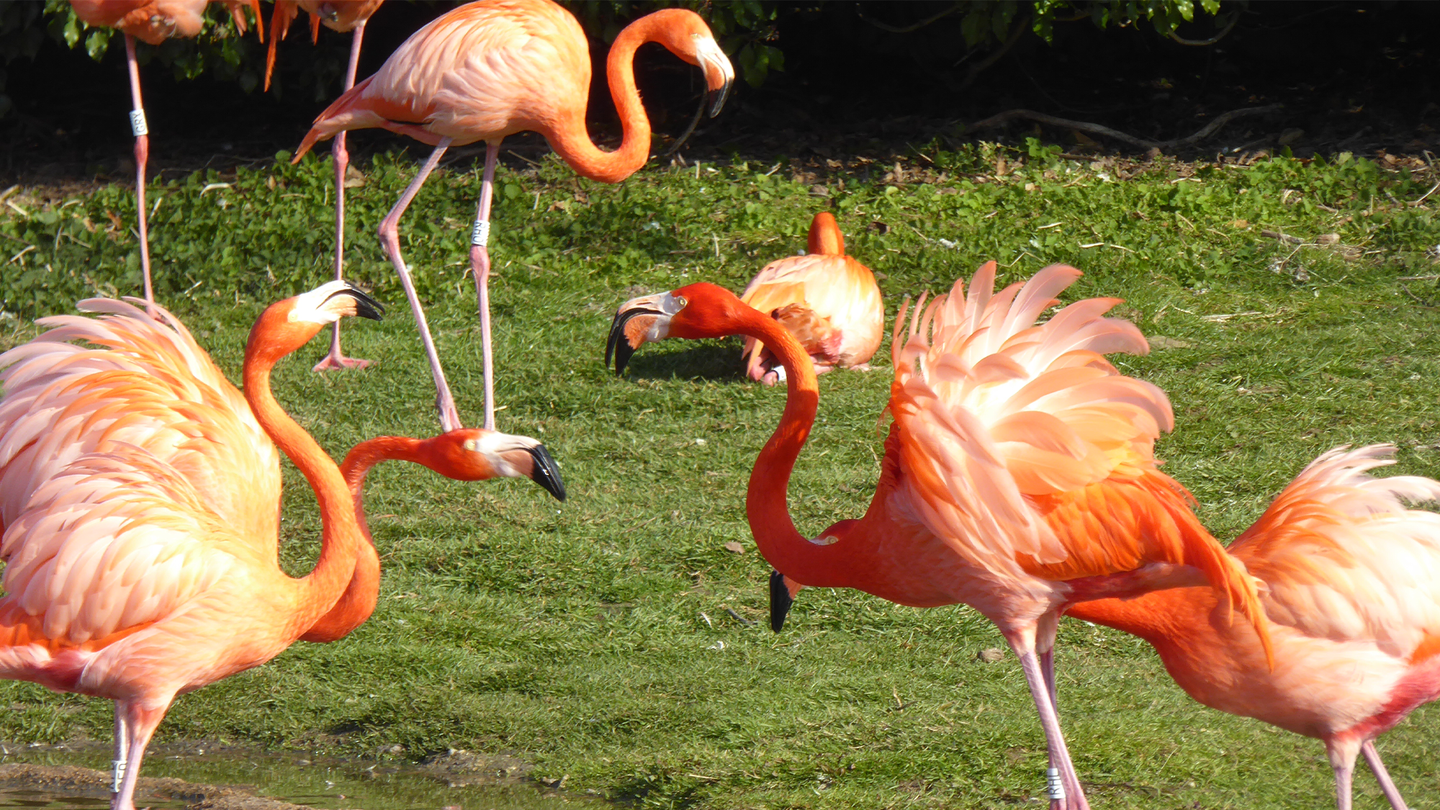Flamingoes have big personalities—and their friendships prove it
The iconic pink birds can be very picky about who they hang out with.

With their bright pink plumage, it’s always Wednesday for flamingos. As it turns out, that might not be the only thing they have in common with members of The Plastics from the 2004 movie Mean Girls.
The Caribbean and Chilean flamingos at the Wildfowl and Wetlands Trust (WWT) Slimbridge Wetland Centre, in Gloucestershire, England might be even cliquier than one of cinema’s most famous girl groups.
[Related: When humans and dolphins fish together, they both win.]
In a study appropriately published Wednesday March 1 in the journal Scientific Reports, a team of researchers analyzed the behavior of 147 Caribbean flamingos (Phoenicopterus ruber) and 115 Chilean flamingos (Phoenicopterus chilensis). They found that both species of flamingos tend to spend time with other birds with personalities similar to their own. The team says that this sheds new light on the complex nature of flamingo societies and can potentially help in management of flocks in captivity.
“Our previous research has shown that individual flamingos have particular ‘friends’ within the flock,” said Paul Rose, an animal behavior specialist from the University of Exeter in the UK and study co-author, in a statement. “In this study, we wanted to find out whether individual character traits explain why these friendships form. The answer is yes – birds of a feather flock together.
They found that flamingos with big personalities had stronger and more consistent ties with other bold birds, while more submissive flamingos hung out with other laid-back birds. For flamingos, “personality” was assessed by measuring behaviors like aggressiveness and willingness to explore the world around them.
“Like humans, flamingos appear to carve out different roles in society based on their personality,” said Fionnuala McCully, a PhD candidate and study co-author now at the University of Liverpool, in a statement. “For example, we observed groups of aggressive birds which attempt to dominate rivals and tend to get in more fights. Meanwhile, the role of submissive birds may be more complex than simply being lower down the pecking order – they may be using a different approach to get what they need.”

The variety in personality groups can provide help for their members, including supporting one another in some of the squabbles that occur in flamingo flocks, which McCully said are “many.”
There were some differences between the two flamingo populations. In Caribbean flamingos, birds of a certain personality type had a particular role within the group overall. The Chilean flock didn’t exhibit this, and the team is not quite sure why. A larger study of wild birds might also find this kind of pattern.
[Related: Pig bystanders are pretty good at resolving anxiety and conflict in the pen.]
“Our findings need further investigation, both to help us understand the evolution of social behavior and to improve the welfare of zoo animals,” said Rose. “But it is clear from this research that a flamingo’s social life is much more complicated than we first realized.”
Some other animals that tend to form friend groups based on personalities are chimpanzees, and Assamese macaques. Some dolphins even use one another as wingmen (or wing dolphins) in alliances for finding mates. Cliquiness in wild animals, afterall, isn’t reserved for the pinkest among them.
